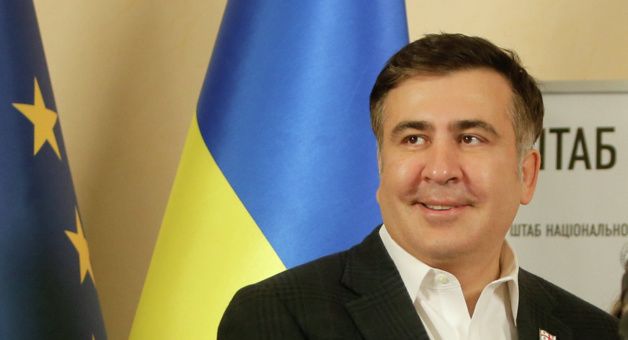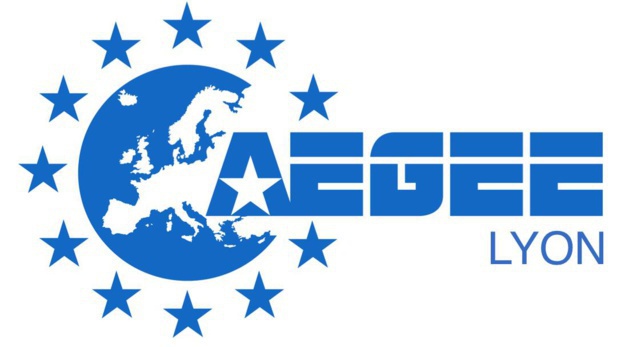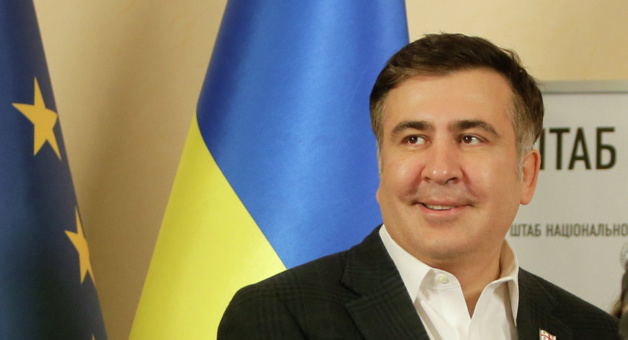
Credits : RR
The elections that took place in May of 2014 were meant to initiate the country’s transformation process. Nonetheless, it can be observed that one year later the situation is still stagnating. Riddled with corruption, financially fragile and threatened by Russia, the country does not seem to be recovering. The current situation is therefore a two-fold challenge for Porochenko’s government. On one hand, if he manages to develop the country’s democratic transition, he will appease the tensions of the whole region. On the other hand, if he fails, the instability of the regime born in the aftermath of the collapse of the USSR, one that prevents any in depth reform to take place, will continue to destabilize the balance of power with Russia. Subsequently, a further growth of the conflicts in the region will be seen.
Controversial actors of democracy
The Ukrainian people saw the post-Maïdan elections as a glimmer of hope for their land - still struggling to get rid of its old Soviet demons. Constantly prone to political crisis since the collapse of the Soviet Union and its early independence days, the country ought to reform its institutions and fight corruption. Porochenko, elected in May 2014 with 55.9% of the votes, understood the great deal that was at stake with the long-awaited reforms. Therefore, he just appointed the ex-president of Georgia, Mr Saakashvili head of the advisory council for the reforms.
The one who was already part-time advisor of the Ukrainian president since he has been appointed is now in charge of reforming the country. Saakashvili is well-known for the modernization that took place in Georgia, a country that was in a similar situation, during his 2004 to 2007 and 2008 to 2013 presidential terms. The latter plans on operating the same way in Ukraine. The combat against corruption and the administrative red tapes that characterize post-USSR regimes, as well as the economical deregulations, that is, the liberation of the prices to encourage concurrence and innovation, indeed modernized the Georgian institutions.
However, that might not be sufficient to reform the entire country. Today’s Ukraine does not have all the characteristics Georgia had in the 2000’s. Furthermore, Russia’s threat must be handled as a problem that is part and parcel of the democratic transition.
Furthermore, if Saakashvili is considered as very competent in order to help countries that were part of the Eastern Bloc to recover, his appointment remains a controversial matter: he is being prosecuted by Interpol in Georgia for abuse of power. He managed to reform the Georgian political system while cultivating an authoritarian dimension. The situation tends to complicate the bilateral relations between both countries even though they are linked by their Soviet past. Ukraine is witnessing a turning point in its history and does not need to make further enemies. What’s more, both neighbours have to ally against their regional common enemy, Russia.
The regional conflict as a motor of reforms in the country
The democratic situation in Ukraine is closely linked to the conflict with Russia. According to the former Under Secretary of Peacekeeping Operations, Jean Marie Guéhenno, as long as the Ukrainian government does not resolve the issue of the separatist provinces and of the repression the Kremlin, the regime will not be reformed. That statement is a two-way street which makes the situation even more complex.
Nevertheless, if they were respected, the agreements of Minsk II could be seen as a chance to be taken by Porochenko. In addition to asking for a break in hostilities - not effective to this date - and delimit the boarders of the conflict, Minsk II also specifies the drafting of a new Ukrainian Constitution. This allows the country to forget the current Constitution, written in 1996 as the result of the collapse of the USSR.
The democratic transition ought to be done at the legislative level as well. The Rada, Supreme Council of Ukraine, recently passed four bills aiming at “decommunising” the Ukrainian society. Acknowledging the crimes of Sovietism does not only allow to align to international norms or adopt pro-Western reforms but also to bury the communist past in order to get rid of the Russian influence that is, still, meaningful in people’s minds. In Alexander J. Motyl’s opinion, these laws fit into the global ambition of democratizing the regime, and bringing justice to the crimes that are still being underestimated.
Context of the bipolar tensions
The past few days have been characterized by many Western interventions in the Ukrainian political life. The story proved it, Porochenko has been elected to obey to the will of Maïdan’s demonstrations and get closer to the European Union and the Western Powers, and logically drifting away from Russia. Subsequently, the democratic transition will not happen without Western actors.
Ukraine and the European Union re-enacted the cooperation agreements, and the discussions between the two sides are still ongoing. While Jean-Claude Juncker met with Poroshenko in the beginning of the week, the European Commission published a press release stating that the EU will keep helping the country’s development both financially and economically, but also at the energetic and political level.
Canada, through Chris Alexander, the Minister of Immigration, also reaffirmed its support for Ukraine to witness a successful democratic transition. The White House, for its part, answered to Poroshenko’s demand concerning lethal arms in order to counter the pro-Russian rebels by sending American soldiers to organise the Ukrainian troops. Even though the Ukrainian Foreign Affairs Minister , Pavlo Klimlin, ensures he does not want to use the military forces, the Russian threat makes itself increasingly present despite the agreements of Minsk II.
The resumption of the discussions with the European Union lead to a reinforcement of the violence in the South of the country, the pro-Russian region. If Russia still seeks to impose its imperialism on the territory, the democratic transition in Ukraine will be reduced to a utopia and the Western States will try to interfere in Ukrainian affairs in order to counter the threats of the Kremlin. That situation nearly caused confrontations between the east and the west. Some people do not hesitate to imagine a second Cold War if the situation were to continue to deteriorate. (Georges Soros, Last chance for Ukraine and Europe, March 30, 2015)






























